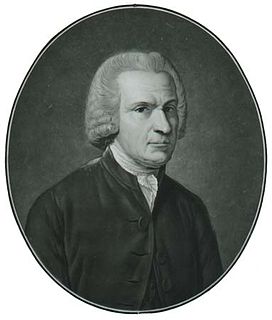A Quote by George Eliot
Genius at first is little more than a great capacity for receiving discipline.
Related Quotes
The Criteria of Emotional Maturity: The ability to deal constructively with reality The capacity to adapt to change A relative freedom from symptoms that are produced by tensions and anxieties The capacity to find more satisfaction in giving than receiving The capacity to relate to other people in a consistent manner with mutual satisfaction and helpfulness The capacity to sublimate, to direct one's instinctive hostile energy into creative and constructive outlets The capacity to love.
Everybody is born with the capacity to enjoy, but not with the art. People think just because they are alive and they breathe and they exist, they know how to enjoy. That is sheer stupidity. Enjoyment is a great art, it is a great discipline. It is as subtle a discipline as music or poetry or painting. It is the greatest creativity.
I think a good deal may be said to extenuate the fault of bad Poets. What we call a Genius, is hard to be distinguish'd by a man himself, from a strong inclination: and if his genius be ever so great, he can not at first discover it any other way, than by giving way to that prevalent propensity which renders him the more liable to be mistaken.
To be free people we must assume total responsibility for ourselves, but in doing so must possess the capacity to reject responsibility that is not truly ours. To be organized and efficient, to live wisely, we must daily delay gratification and keep an eye on the future; yet to live joyously we must also possess the capacity, when it is not destructive, to live in the present and act spontaneously. In other words, discipline itself must be disciplined. The type of discipline required to discipline discipline is what I call balancing.
The more love we give away, the more we have left. The laws of love differ from the laws of arithmetic. Love hoarded dwindles, but love given grows. If we give all our love, we will have more left than they who save some. Giving love, not receiving, is important; but when we give with no thought of receiving, we automatically, and inescapably receive abundantly. Heaven is a by-product of love. When we say, "I love you," we mean that "a little of God's love flows from me to you." Thereby, we do not have less, but more. For in flowing, the quantity is magnified.





































